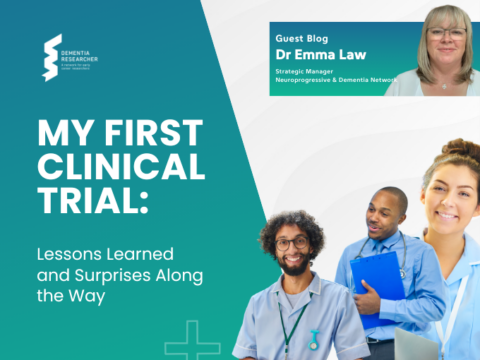The Alzheimer’s Association International Society to Advance Alzheimer’s Research and Treatment (ISTAART) announced a bunch of cool seminars for the start of this year. They are covering a wide variety of topics around dementia research and, surprise surprise, I found myself signed up to one all around nutrition and dementia. If anyone has listened to my food for though series on the DR podcast you will know that I am fascinated by this topic. In this seminar, we were given a breakdown of all the biggest findings around this topic in 2023. Three main topics were covered so why not report this back to you, our lovely readers and listeners?
Topic 1 – Diets and Dementia
Our food for thought series has talked a lot about dietary approaches to reducing your chances of developing dementia. As the presenter navigated through this theme there were some interesting insights about how the food we eat may impact our brain health. It is becoming increasingly clear that nutrition has a profound effect on brain health and that metabolic activity (which is influenced by what we eat) plays a big role. Most of the studies published in 2023 looked into at least one of three diets; the mediterranean diet, ketogenic diet (follow this link to hear more about this) and the MIND diet which is essentially a wholefood plant based diet but with the addition of fatty fish. In a wide range analysis of the published studies in 2023, the presenter demonstrated that all 3 diets had been shown to slow cognitive decline in dementia patients with each diet conferring their own unique benefits. The mediterranean diet was shown to improve global cognition, the keto diet improved verbal recognition and the MIND diet helped working memory, verbal recognition, memory and attention. The MIND diet was also shown in a Rush University post mortem study of 581 people to REDUCE amyloid pathology and promote better brain health. The MIND diet certainly seemed to be the most powerful of the three but the overall message was perhaps the most interesting. Diet can not only help prevent dementia, it can also improve the quality of life for someone who is diagnosed with dementia (although I suspect this is only the case for a limited time window before too much neuronal damage is done).
On top of that we saw 2023 studies further demonise ultra processed foods. We have talked a lot about these in our food for thought series. It’s those ’21 ingredients, most sound like chemicals’ sort of foods in shiny packaging to make them look enticing. Ultra processed foods gave me IBD and now it looks like they might also be able to give you dementia… or at least contribute. We hear about a study that followed 11,000 people and found that there was an almost dose dependent relationship between ultra processed food and cognitive decline. The more you consumed, the more your brain health declined later in life. If you consumed ‘high’ amounts of ultra processed food, you were 4 times more likely to develop neurodegenerative issues than if you consumed very little. Fascinating studies indeed but the whistle stop tour did not end there.
Topic 2 – The Muscle-Brain Axis
This might seem like a strange topic to be linked into a nutrition seminar but remember that our muscles are powered by what we eat. Now, it seems, our muscular health can also influence our brain health. Topics like this really make you realise how interconnected the brain is with every other part of the body. We heard about a study demonstrating that muscles literally mirror the pathologies seen in the brain in Alzheimer’s disease with the aggregation of amyloid beta and formation of tauopathies. Mitochondrial function in muscle cells was also shown to predict cognitive impairment with a study highlighting an association between skeletal muscle health and Alzheimer’s biomarkers. The two are so linked that even hand grip strength can give an indication of brain health with one study reporting an association between a loss of grip strength and hippocampal shrinkage. The key take home from this theme was that our brain and muscular system are connected, and neuromuscular dysfunction can be highly predictive of future cognitive decline. Definitely something to pay close attention to!
Topic 3 – Insulin and Cognition
Our final topic took us back into territory that more naturally resides in the space of nutrition. Insulin levels in the body are heavily impacted by what we eat and insulin pathways have also been heavily implicated in Alzheimer’s disease development in one way or another for many years. We learned that a new study showed destruction of insulin receptors in the blood brain barrier of Alzheimer’s patients. Perhaps this sheds light on the mechanisms behind the insulin resistance that can be observed in Alzheimer’s brains – a phenomenon that has led some to dub the disease a ‘type III diabetes’. We also learned that administration of insulin through a nasal spray can potentially protect against cognitive dysfunction and reduce serum biomarkers of Alzheimer’s. Back to the food angle, we also heard about a study that showed that eating mixed nuts improved brain insulin sensitivity but only in the brain. Nowhere else in the body. Nuts are magical foods for the brain.
It was a truly fascinating seminar and I took one main message home with me. What we eat and how we live is so important. Our brains are fuelled by our food. We have a pristine Ferrari sitting on our shoulders. Why would we fuel that with chip fat? Premium fuel for a premium car. The same goes for the brain. Eat well, live well, think well (and have peanut butter!)
Don’t forget, you can get involved in the Nutrition, Metabolism & Dementia PIA by joining ISTAART and get access to previous webinars!

Dr Sam Moxon
Author
Dr Sam Moxon is a Research Fellow at the University of Birmingham. His expertise falls on the interface between biology and engineering. His PhD focussed on regenerative medicine and he now works on trying to develop 3D bioprinting techniques with human stem cells, so that we better understand and treat degenerative diseases. Outside of the lab he hikes through the Lake District and is an expert on all things Disney.

 Print This Post
Print This Post






Hi Sam
I’m a nutritional neuroscience student from Australia and I love the nutrition segment on DR!
I am curious are we able to access the seminar somewhere?
Hi Felicity, thank you for your feedback.
You can find the webinar using the link below – if you’re interested you should also consider joining ISTAART, it is free for students – https://istaart.alz.org/home
https://youtu.be/kkkWR8ASKWY?si=-TwnEbve3M5xbf4U
I have joined! Thanks Adam